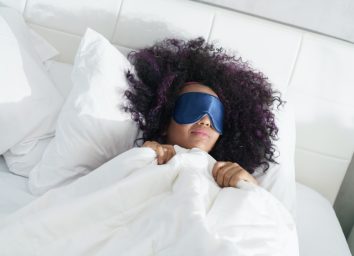Eating Habits to Avoid For Better Sleep, Say Dietitians
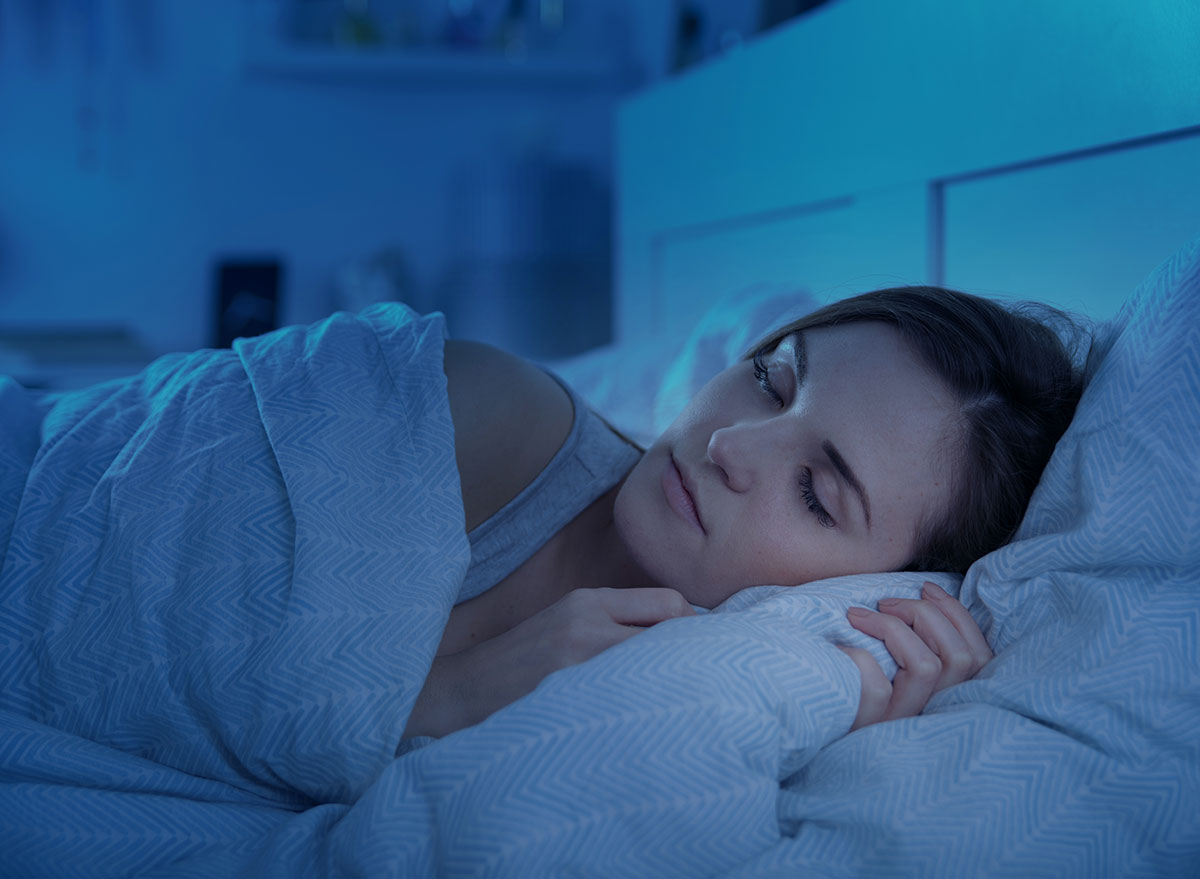
There are so many reasons why you might struggle to get good sleep, but one which you may not have considered yet is your diet. In fact, what you eat and drink on a daily basis has the serious potential to ruin your sleep.
"The food we eat impacts our sleep because of the process of digestion, which spikes blood sugar and causes the secretion of insulin in response to eating," says Lauren Minchen, MPH, RDN, CDN, nutrition consultant for Freshbit, the AI-driven visual diet diary app. "If our bodies are too busy breaking down heavy foods (particularly if we eat them right before bed), we may not sleep as deeply as we would if we ate healthier, lighter foods."
"In order for our sleep to be more fully restorative, our whole body, including our digestion, needs to be at rest," Minchen adds, underscoring the important role the foods you eat before bedtime can have on your sleep.
To make matters even more complicated, our diet doesn't just affect our sleep by interfering with our digestive processes, it can also have a direct impact on our circadian rhythm.
"If there is an imbalance of certain essential nutrients or fluid throughout the day, our circadian rhythms may be disrupted," adds Minchen, citing the importance of maintaining a well-balanced, regular diet throughout the day for optimal sleep health.
To get better, more restful sleep, we asked dietitians for the 8 eating habits that you should avoid. Read on, and for more on how to eat healthy, don't miss 7 Healthiest Foods to Eat Right Now.
You eat dinner late.
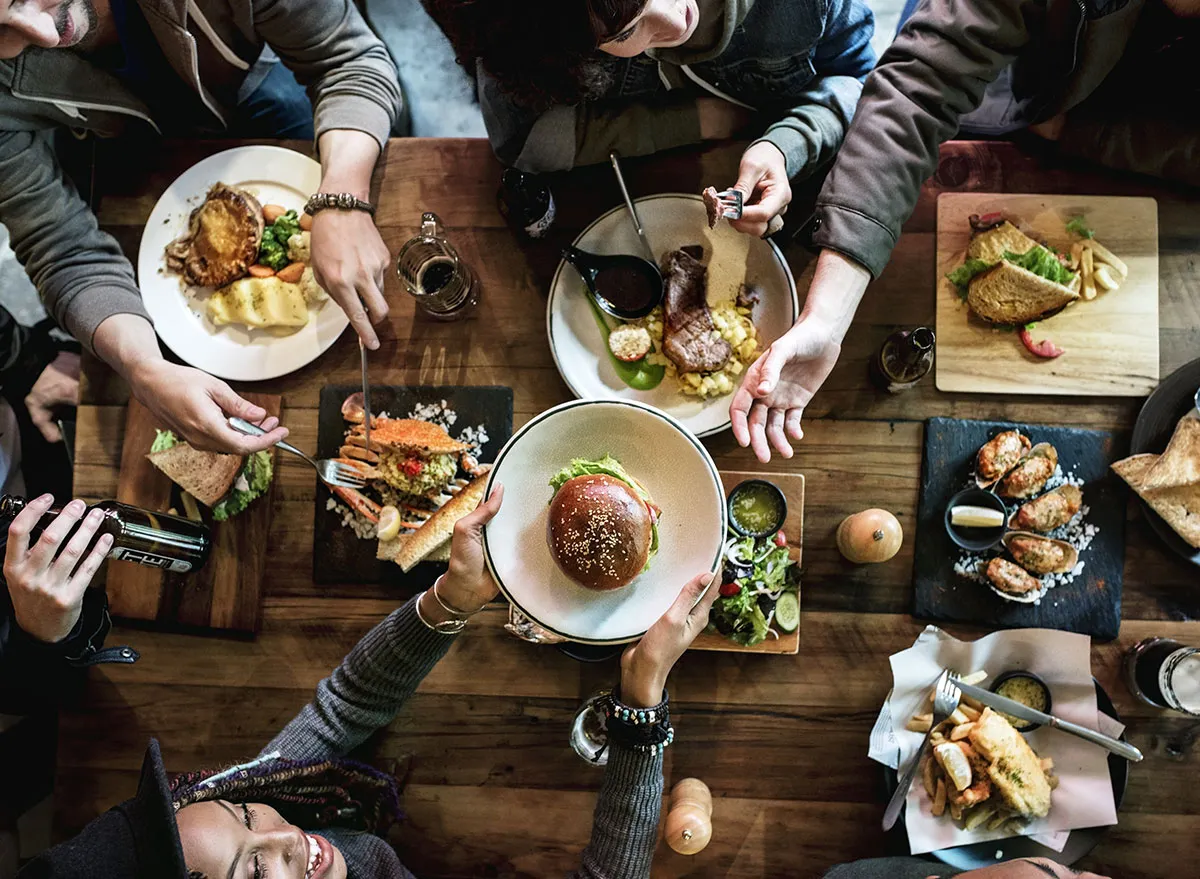
"So many of us eat dinner late and go to bed shortly after or eat food prior to going to bed, and this can disrupt our sleep as our blood and energy is still going to our GI tract to digest our food," says Amy Shapiro, MS, RD, CDN, registered dietitian and nutritionist for Daily Harvest. "We want our stomachs to be mostly empty so our energy can be spent restoring and we can get into a deeper sleep. Also, if you are too full prior to going to sleep you can be uncomfortable, experience acid reflux and that can keep you up and disrupt sleep as well."
Adds Brenda Braslow, MS, RDN, LDN, registered dietitian for MyNetDiary, "The pressure on the esophageal sphincter can cause acid to backflow into the esophagus. This can be very uncomfortable and keep you awake."
You eat greasy or high-fat meals close to bedtime.
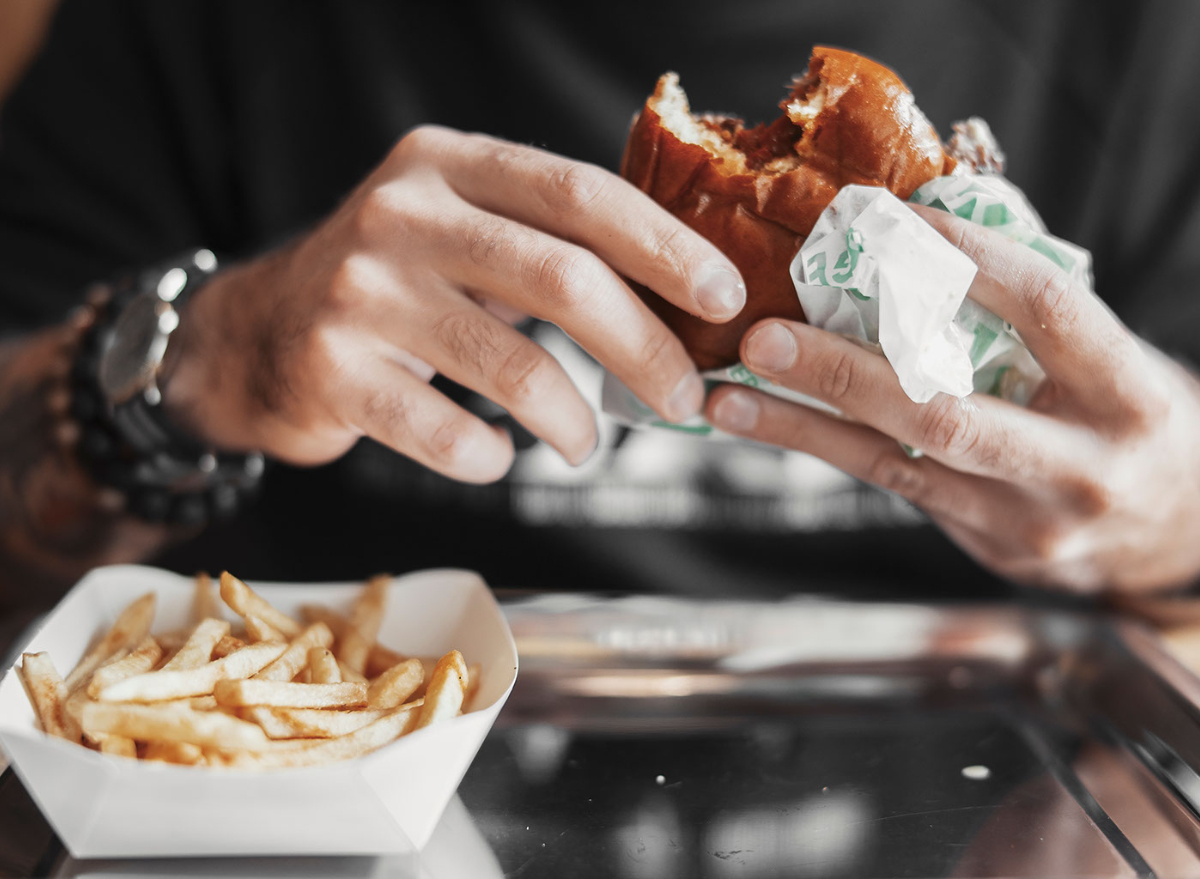
"Fat takes longer to digest and so stays in the stomach longer, stimulating more stomach acid. This can result in heartburn," says Braslow. "Lying horizontally in bed makes heartburn worse because the stomach acid can more easily backflow into the esophagus." It all gets much worse if any of these 18 Foods Making Your Heartburn Worse are on the dinner menu.
You eat too much sugar/carbohydrates.
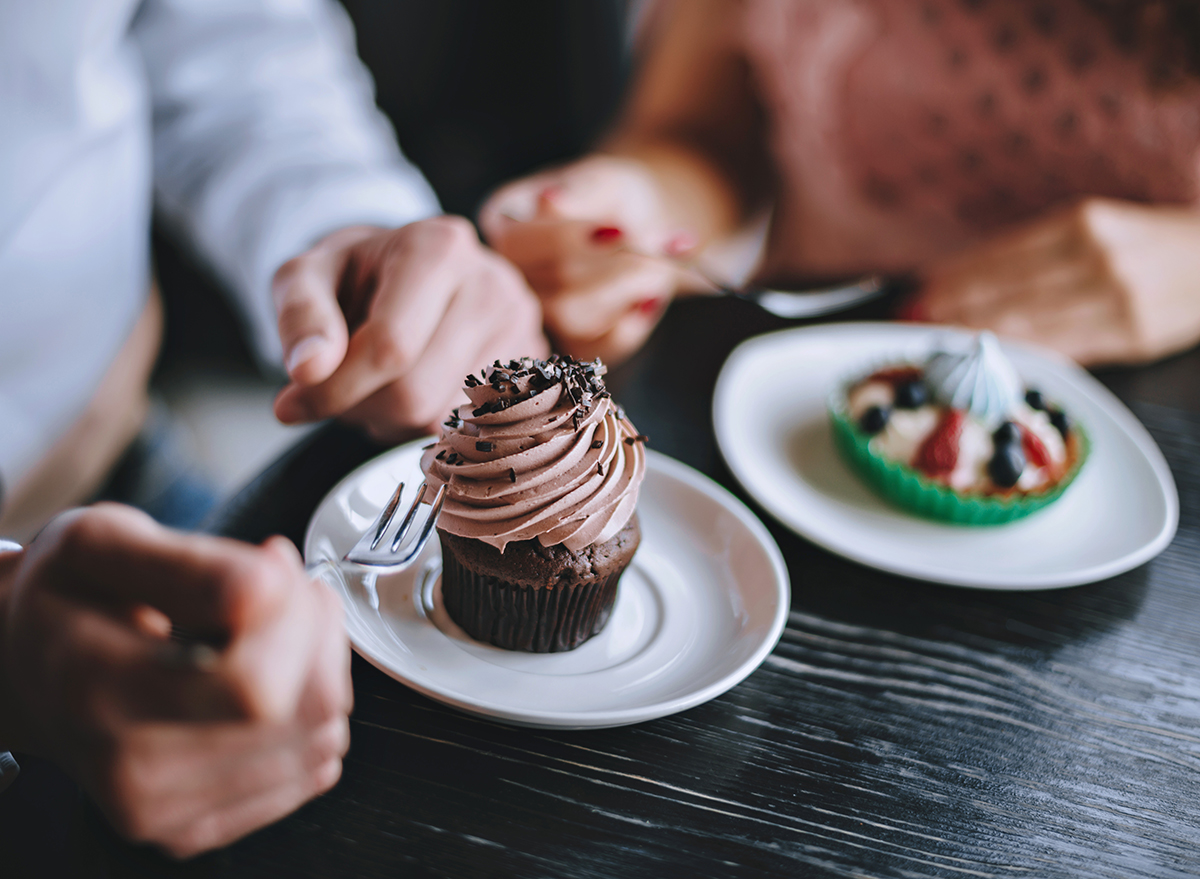
"Carbohydrates can make us feel drowsy, which may make us feel like they boost our sleep," says Minchen. "However, too many carbs or too much sugar (think sweets, too many starches, etc.) throughout the day can trigger sugar and insulin spikes that ultimately disrupt our sleep hormones and contribute to more wakeups throughout the night and lighter, less restorative sleep."
Read more: 8 Side Effects of Eating Too Many Carbs
You try to meet your water intake goals too close to bedtime.

"So many of us are too busy to drink water during the day so we try to consume most of our water needs in the evening," says Shapiro. "This can lead to disrupted sleep as you may have to wake up throughout the night to use the restroom. It is important to drink water throughout the day to support your body's digestion and detoxification processes and to promote energy." See: 16 Ways You Didn't Realize You're Drinking Water Wrong.
You drink too much alcohol.

"Like carbohydrates, alcohol can make us feel sleepy. However, too much alcohol (and for some, any alcohol at all) can actually suppress the first two stages of REM sleep (there are four total stages we cycle through a few times each night), which contributes to a disruption of the natural sleep cycle and leads to less restorative sleep," says Minchen. "Alcohol can also lead to insomnia for some since they experience a delay/suppression of the first two stages of their REM sleep."
You drink caffeine too late in the day.
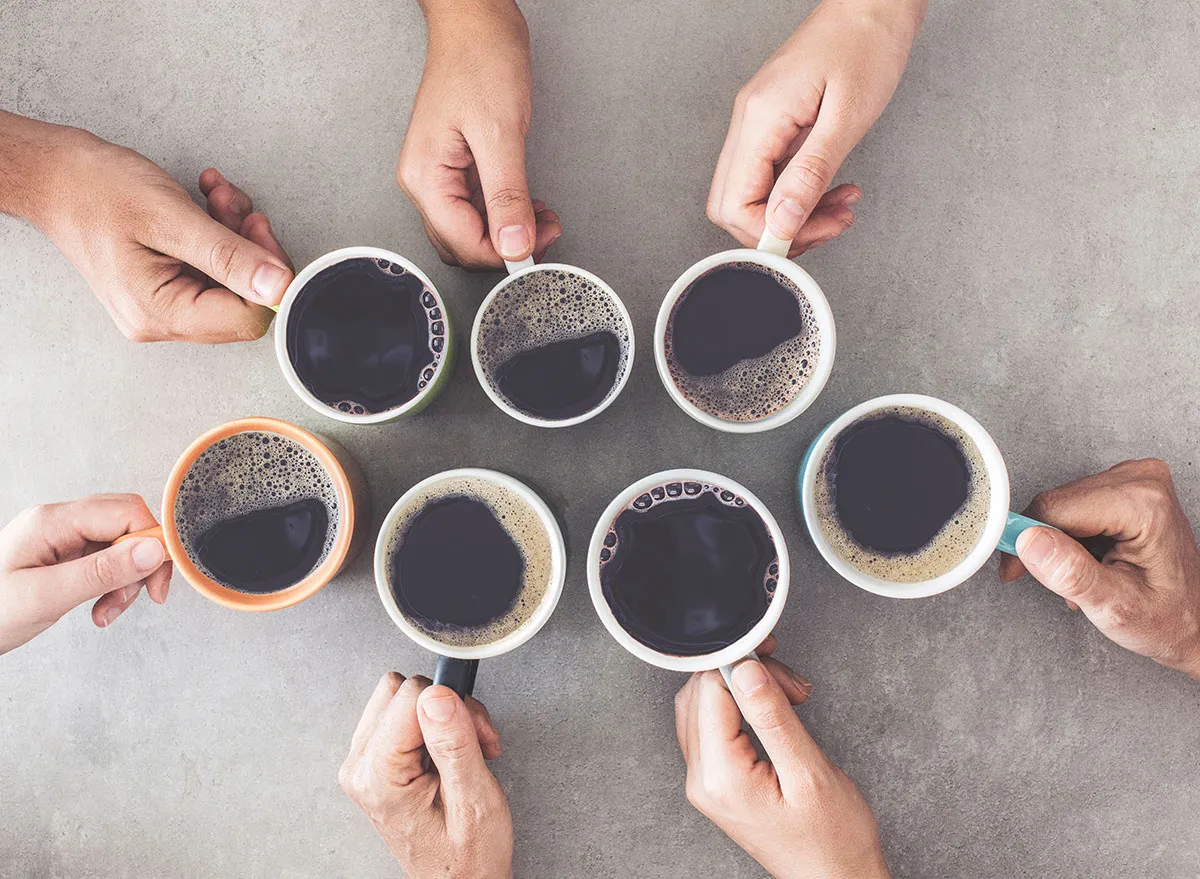
"Caffeine is a stimulant and gives us energy, clarity and focus. However some people do not metabolize caffeine very efficiently and it can remain in our systems long after we consume it which can prevent us from falling to sleep," says Shapiro. "I recommend my clients do not consume caffeine (from tea, soda, coffee or even chocolate in some individuals) after 12 p.m. So if you reach for a 4 p.m. coffee to get you through the rest of the day and you don't sleep well you may want to consider switching to water or decaf!"
For more, don't miss The One Major Side Effect Caffeine Has On Your Sleep, Says Science.
You drink caffeinated coffee or tea after dinner.
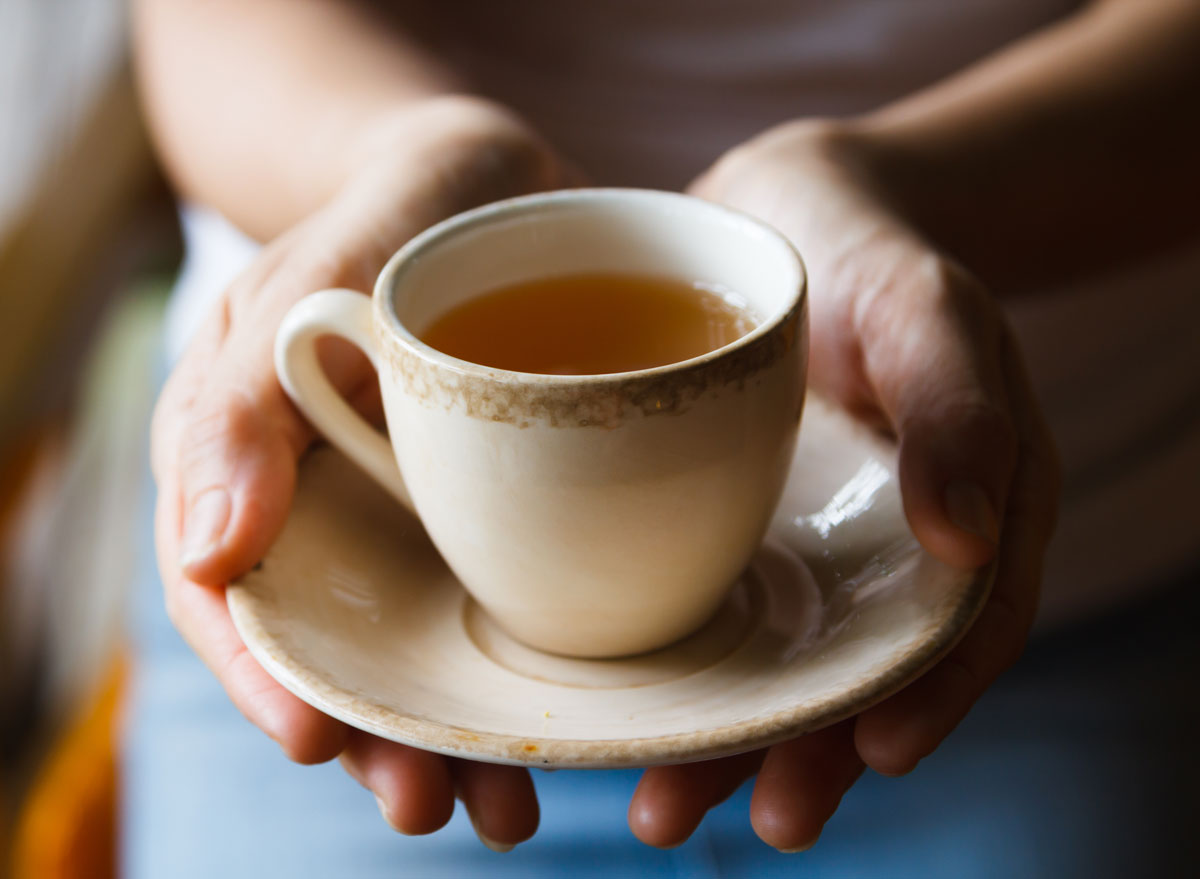
"Caffeine blocks adenosine in the brain. Adenosine is a sleep-promoting chemical we naturally produce when we need sleep (we produce more as the day progresses). When caffeine blocks this brain chemical, we feel alert and awake," says Minchen. "Caffeine also has a half-life of 4-6 hours, meaning that only 1/2 of it has been broken down in that time frame. If you drink coffee or tea after dinner, you will effectively experience the alert feelings of caffeine all night, and the caffeine will only be metabolized closer to when you wake in the morning."
You went to bed dehydrated.

"Becoming dehydrated throughout the day disrupts our sleep cycles and may lead to more frequent wake-ups and less restorative sleep," says Minchen. "Dehydration actually contributes to there being fewer available amino acids (proteins) in our bloodstream, which means we don't produce adequate amounts of melatonin. This may mean that being chronically dehydrated will disrupt our circadian rhythm and actually leads to insomnia. Further, not getting adequate sleep can then lead to dehydration, which feeds this vicious cycle. Adequate sleep helps our bodies regulate fluid retention through the secretion of vasopressin. If we cut sleep short, we may end up more dehydrated throughout the day."
For more ways to get a better night's sleep, consider ditching these The Surprising Foods Making It Harder For You to Sleep, Expert Says.
